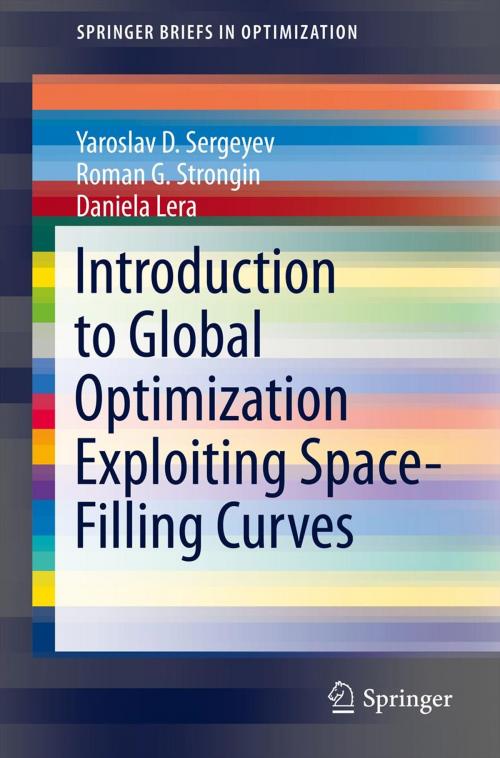Introduction to Global Optimization Exploiting Space-Filling Curves
Nonfiction, Science & Nature, Mathematics, Topology, Business & Finance, Management & Leadership, Operations Research| Author: | Yaroslav D. Sergeyev, Roman G. Strongin, Daniela Lera | ISBN: | 9781461480426 |
| Publisher: | Springer New York | Publication: | August 13, 2013 |
| Imprint: | Springer | Language: | English |
| Author: | Yaroslav D. Sergeyev, Roman G. Strongin, Daniela Lera |
| ISBN: | 9781461480426 |
| Publisher: | Springer New York |
| Publication: | August 13, 2013 |
| Imprint: | Springer |
| Language: | English |
Introduction to Global Optimization Exploiting Space-Filling Curves provides an overview of classical and new results pertaining to the usage of space-filling curves in global optimization. The authors look at a family of derivative-free numerical algorithms applying space-filling curves to reduce the dimensionality of the global optimization problem; along with a number of unconventional ideas, such as adaptive strategies for estimating Lipschitz constant, balancing global and local information to accelerate the search. Convergence conditions of the described algorithms are studied in depth and theoretical considerations are illustrated through numerical examples. This work also contains a code for implementing space-filling curves that can be used for constructing new global optimization algorithms. Basic ideas from this text can be applied to a number of problems including problems with multiextremal and partially defined constraints and non-redundant parallel computations can be organized. Professors, students, researchers, engineers, and other professionals in the fields of pure mathematics, nonlinear sciences studying fractals, operations research, management science, industrial and applied mathematics, computer science, engineering, economics, and the environmental sciences will find this title useful .
Introduction to Global Optimization Exploiting Space-Filling Curves provides an overview of classical and new results pertaining to the usage of space-filling curves in global optimization. The authors look at a family of derivative-free numerical algorithms applying space-filling curves to reduce the dimensionality of the global optimization problem; along with a number of unconventional ideas, such as adaptive strategies for estimating Lipschitz constant, balancing global and local information to accelerate the search. Convergence conditions of the described algorithms are studied in depth and theoretical considerations are illustrated through numerical examples. This work also contains a code for implementing space-filling curves that can be used for constructing new global optimization algorithms. Basic ideas from this text can be applied to a number of problems including problems with multiextremal and partially defined constraints and non-redundant parallel computations can be organized. Professors, students, researchers, engineers, and other professionals in the fields of pure mathematics, nonlinear sciences studying fractals, operations research, management science, industrial and applied mathematics, computer science, engineering, economics, and the environmental sciences will find this title useful .















